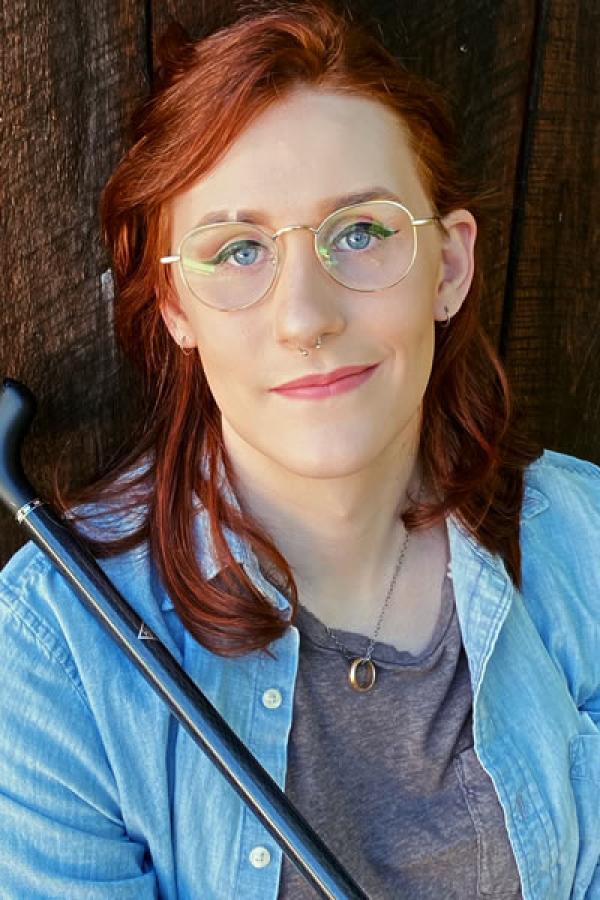torrin a. greathouse

Photo by Tarik Dobbs
Bio
torrin a. greathouse is a trans poet, cripple-punk, and MFA candidate at the University of Minnesota. She is the author of Wound from the Mouth of a Wound (Milkweed Editions, 2020), winner of the Ballard Spahr Prize for Poetry, as well as two chapbooks, Therǝ is a Case That I Ɐm (Damaged Goods, 2017) and boy/girl/ghost (TAR Chapbook Series, 2018). Their work is published in Poetry, New England Review, Ploughshares, the Kenyon Review, and Best New Poets 2020. She has received fellowships from the Effing Foundation, Zoeglossia, and the University of Arizona Poetry Center. They are currently working on their second collection of poetry.
For most of 2018-2019, I was homeless or housing insecure, under- or unemployed. This is not remarkable; according to a 2015 study by the National Center for Transgender Equality, 30 percent of trans people have been homeless at some point in their lives, while trans people experience unemployment at a rate of three times that of the general populace. I can only imagine that in the last five years, as anti-trans violence has increased, and anti-trans legislation has followed it, that these numbers have increased. The poems for which I was awarded this grant are poems about survival, desire, sex work, and the act of finding joy and beauty to carry me through.
I’m grappling with what it means to receive a National Endowment for the Arts [Fellowship] as a disabled, trans woman, for these poems in 2020. In a year where this nation has continuously made efforts to legislate trans people out of existence, and when disabled people are dying across that nation because they are refused medical care in the midst of a global pandemic. What I do know is this: the NEA will sustain me, and those close to me, through a year where so many are struggling. It will provide much-needed support while I complete a speculative second collection—DEED—which most of these poems will call home. And maybe, just maybe, it will help ensure the possibility of employment on the other side of my MFA, of not ending up homeless again, and will give me the chance to navigate out of the intergenerational and structural poverty that has shaped my life.

